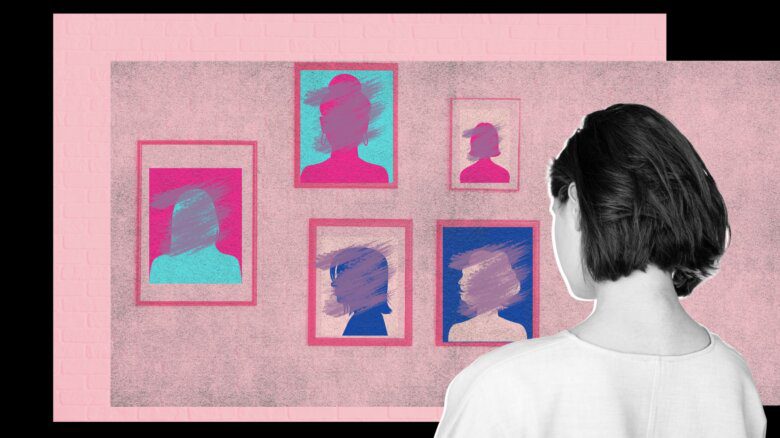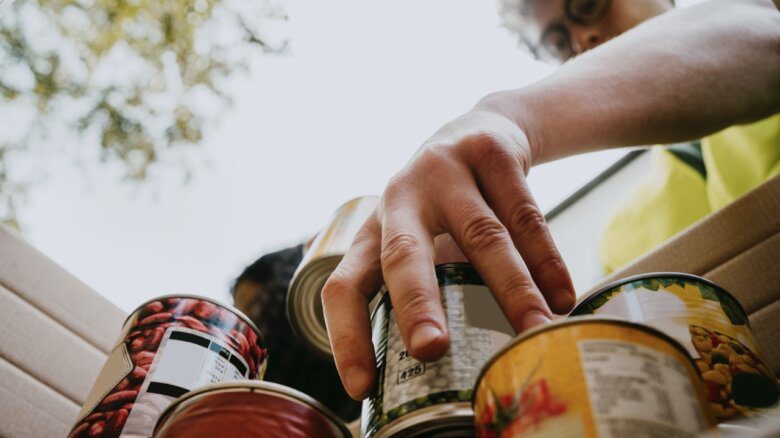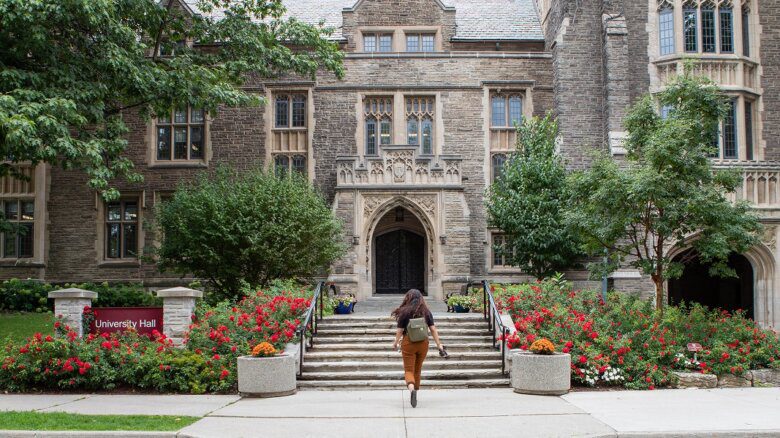When news of Recep Tayyip Erdoğan’s re-election came, a sombre realization washed over drag artist Akış Ka: Turkey would no longer be their home. From the early days of the populist Islamic-backed Erdoğan presidency, the trans artist had witnessed the decimation of the vibrant queer performance scene they once cherished. So when Gülşen Çolakoğlu, one of the country’s pop stars, was arrested on charges of “inciting or insulting the public to hatred and enmity” last year, Ka knew they had to prepare their exit plan.
“After this happened, I just figured that I don’t want to live here anymore,” Ka tells Xtra.
In April 2022, the Turkish singer-songwriter Gülşen Çolakoğlu found herself on the receiving end of Islamic Conservatives’ ire after a video surfaced, capturing her lighthearted banter with a band member during a concert, where they joked about his education in a government-supported Islamic school. Widely disseminated through a Turkish state-linked daily newspaper, the footage ignited a conservative backlash on social media. Hashtags like “#GülşenTutuklansın” (Arrest Gülşen) and “#HaddiniBilGülşen” (Know your place Gülşen) quickly gained traction, eventually leading to her arrest.
Since retaking power, Erdoğan’s government has doubled down on its campaign of violence and religious oppression against the LGBTQ+ community on social media, with officials stating that rainbow flags undermine “family values” and associating the LGBTQ+ community with “social terrorism.”
The new minister of national education, Yusuf Tekin, took aim at an “imposition of LGBT propaganda” that he said cannot be allowed in schools. Minister of Justice Yılmaz Tunç maintained the family values line, saying he will protect Turkish families against “deviant movements.”
In his first cabinet meeting after the election, President Erdoğan placed the fight on “deviant movements” front and centre: “We will take all kinds of steps from the establishment of the Family and Youth Bank to the protection of the family, which is the main pillar of the society, against deviant currents.” The Family and Youth Bank, a bank reportedly funded by Turkey’s natural gas and oil revenues, is part of Erdogan’s effort to “encourage our youth to start a family” with “financial assistance” in all aspects of their lives “starting from education” and “from marriage to childcare.”
Erdoğan was re-elected in May after a hard-fought campaign against his liberal pro-LGBTQ+ opponent Kemal Kılıçdaroğlu.
The Republican People’s Party (CHP) leader ran on a pro-LGBTQ+ agenda, pledging to preserve LGBTQ+ rights and acceptance in a “secular” Turkey. His vision of Turkish society clashed with the Conservative Islamic establishment who accused him of “threatening the survival” of family values to gain the sympathy of “global power centres” in one of Turkey’s most polarised election cycles.
Caught between East and West, Turkey has grappled with its religious and cultural identity for as long as it has existed. According to its current Constitution, Turkey is secular, and has been since its formation in the early 1920s. Turkey’s founder and first president Mustafa Kemal Atatürk transformed the former Ottoman state into a secular republic with the belief that Western politics and values were the only way the new country would modernise. This Western secular ideology called Kemalism came to define Turkey’s identity and remained largely unchallenged until a coup d’état in 1980.
The country’s new military government reversed course and encouraged the practice of Islam in public life, in an attempt to drum up nationalism and prevent communist or leftist sympathy. This effectively brought Islam back into the political conversation and paved the way for Islamicist politicians like Erdoğan to gain popularity.
One of the best representations of Turkey’s ongoing religious debate can be seen in its public school system. Through the second half of the 20th century, religious education was gradually integrated into public schools. But the 1980 military coup made such Islamic studies mandatory, and also facilitated a sharp increase in İmam Hatip schools, which base their curriculum on the teachings of conservative Islam.
After Erdoğan was elected in 2002, the number of students attending these religious public schools nearly doubled as many secular schools converted into religious ones. After narrowly escaping a military coup in 2016, Erdoğan wiped out the remaining secular partners within his coalition to strengthen his support from Islamic conservatives. With an estimated 89.5 percent of Turks practising Islam, Erdoğan sought to appeal to Islamic conservatives with anti-LGBTQ+ rhetoric and ultimately won re-election in Turkey’s first-ever presidential runoff.
The heightened anti-LGBTQ+ rhetoric has forced Ka and other members of the LGBTQ+ community to flee Turkey. It’s a race against time to secure funds and visas to extend their stay elsewhere.
“I want to produce art and survive with my art, I want to tell our stories, make us visible and announce our struggle to the world. But it is not possible to realise this desire in Turkey,” Ka says.
Ka, who flew from their native Istanbul to London on May 1, ahead of the elections, has been working on a queer artistic project for a year. The project is now coming to an end, and so is their work visa. But flying back to Turkey is not an option for them. So they have applied for a Global Talent Visa, which would allow them to work in Britain for another five years. Ka has raised £2,500 on GoFundMe with the help of 71 donors, which will cover the costs of a new visa and legal expenses. They will find out in September whether their request is accepted.
“It doesn’t matter that my visa is expiring. I can stay in London while my application is being processed. I already feel like I have moved here,” they say.
The queer performance artist considers themself one of the lucky ones. Back home, at least eight people were detained at this year’s Trans Pride in Istanbul after the city’s governor imposed a blanket ban on all Pride marches, claiming that they “threaten our family institution.” Following the ban, Halil Konakçı, a prominent preacher responsible for promoting Sunni Islam, thanked the authorities for clamping down on marches in a tweet seen by over 400,000 users, casting homosexuality as “indecency,” “immorality,” “dishonour” and “perversion.”
Nikopol, whose last name is being omitted for his safety and who has been engaged in LGBTQ+ activism since 2006, says the government’s overt anti-LGBTQ+ rhetoric has made campaigning for their rights “incredibly challenging”: “It takes a toll on one’s mental and emotional well-being.” The Ankara-based LGBTQ+ association he co-founded in 2015 was forced to shut down in 2018 after his software and web design company, which covered the association’s costs, went bankrupt.
He also tried to flee to Europe. But Turkey’s 40-plus percent inflation rate has dried up his savings and brought his relocation plans to a halt. Now stuck in Istanbul, he fears that Erdoğan and his Conservative-Islamic majority in Parliament could amend the Constitution to further crack down on LGBTQ+ associations.
“It is highly likely that they will make changes [to the Constitution]. I believe they will shut down LGBTI associations too,” Nikopol says.
In anticipation, the 43-year-old activist, also a freelance web designer, has found refuge in the LGBTQ+ community websites he designed. One of his forums, strong of 4,000 users, has come under “serious” cyberattacks in recent months, sometimes preventing LGBTQ+ members from airing their grievances or sharing their struggles. It collapsed in late May.
“In short, you are left alone to face these difficulties”, he says.
Death threats have become commonplace and support for the LGBTQ+ community has dwindled, leaving Nikopol with no choice but to stay cooped up in his one-bedroom apartment in Istanbul and wait for Cloudflare, a non-profit organisation he partnered with, to restore his website forums.
Nikopol fears his forums could be permanently shut down. Two weeks after Erdoğan’s re-election, a trans woman expressed a desire to commit suicide in a post on the forum. “Life is nothing but torture for me,” she wrote in her last message on the forum before she went inactive. Nikopol reached out to her and tried to convince her otherwise, but she never answered.
Erkan, a 28-year-old gay man of Kurdish heritage whose new home country cannot be disclosed for security reasons, also contemplated suicide. His dream of a pro-LGBTQ+ secular Turkish government was shattered when Kılıçdaroğlu lost to Erdoğan. Erdoğan’s opposition leader, the heir to Turkey’s secular and liberal Kemalist heritage, represented Erkan’s “last hope.” It was “broken” on May 28 when Erdoğan was declared the winner with a razor-thin three percent lead over his opponent.
“Unfortunately, I no longer believe that hope will ever come to this country for LGBTQ+ rights. Our lives are in danger here,” he says. “Fifty-two percent of Turks look at us as the devil and they can kill us if they know that they will get away with it.”
Erkan, who grew up in a fervently Islamic family in Istanbul, was taught same-sex relationships are a sin and homosexuals are worthy of death under Islam. One day, as he was about to come out to his best friend, he deemed it safer to test the waters first and ask his friend about his views on homosexuality. His friend’s answer left him dismayed.
He says his friend said that “homosexuals should not be alive, and made a discourse against me such as ‘if you were gay, I could kill you.’ My world collapsed with the answer I received. It turned out that my close circle and all my friends had no respect for LGBTI individuals. At that moment, I felt as if I was living on another planet and isolated myself from others.”
A few years later, Erkan took the risk to celebrate his boyfriend’s birthday at his parents’ home in Istanbul while they were out of town. As they were having a “romantic time” his family barged in and proceeded to beat Erkan and his boyfriend.
“They even tried to use a small knife against my boyfriend, so I tried to get in front of them and stop them, but the knife grazed my arm and when the blood started to flow, they panicked.”
Erkan has since fled his home country in fear for his life after suffering from homophobic hate speech and witnessing a disproportionate use of force by both political Islamist groups and law enforcement officers during Pride marches. He has refused to divulge which country he chose as his new home for fear of being identified.
Such LGBTQ+ hate crimes have ramped up and been legitimised by growing hate speech perpetrated by government officials, according to the latest report by KaosGL, one of Turkey’s oldest and largest LGBTQ+ rights organisations. 225 people were subjected to physical violence in the country last year, according to reports.
And discrimination against the LGBTQ+ community by the ruling political class will likely intensify, says Sociologist and Criminologist Dr. Baris Cayli Messina.
“Repression policies which work to render the LGBTQ+ people invisible will be enforced, such as closing down organisations, not allowing Pride marches, discrimination of LGBTQ+ people from health to education services and prohibiting any form of expression in the media that supports queer life,” he tells Xtra.
“One disquieting fact remains,” he adds, “Our lives will become more challenging, and we will be subjected to increased violence without any protection or support. It is essential that we come together in solidarity to weather the challenges of this tumultuous period. Our unified strength will keep us afloat and bring us closer as a community and support each other in the face of injustice.”
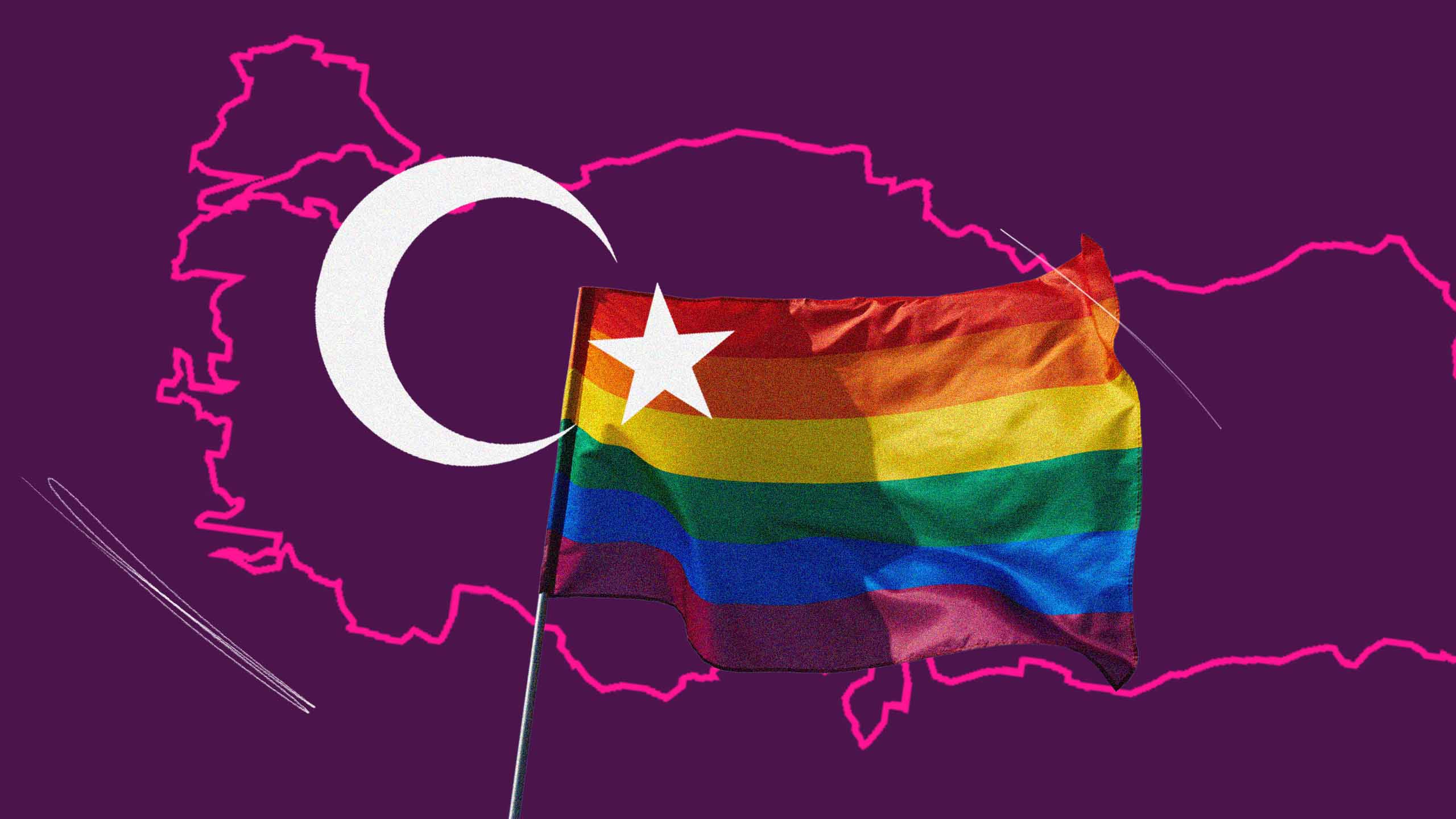
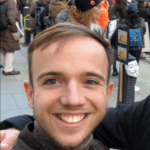
 Why you can trust Xtra
Why you can trust Xtra
